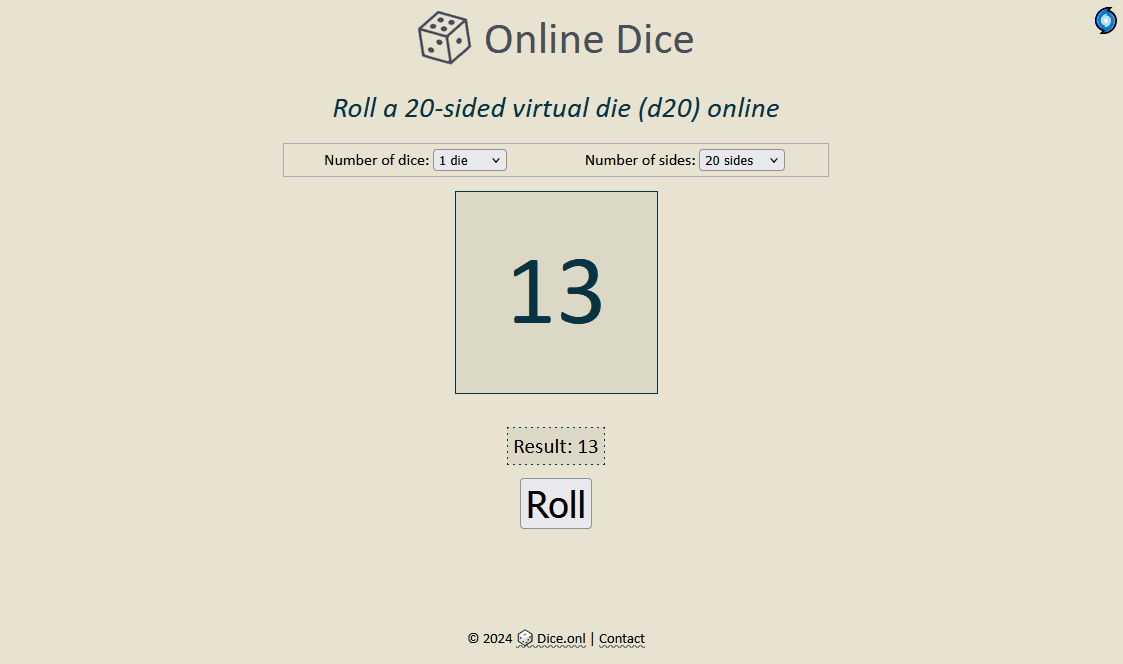Dice have always been an essential tool for board games, tabletop role-playing adventures, and even classroom activities. With the shift toward digital platforms, online dice have become a practical alternative to traditional dice. Whether you’re playing Dungeons & Dragons, running a classroom activity, or simply need a fair way to make decisions, digital solutions now make the process seamless and accessible.
What Are Online Dice?
Online dice refer to virtual tools that simulate the rolling of dice on a screen. These tools generate random results, just like their physical counterparts. They can come in the form of mobile apps, web platforms, or even features built into gaming systems.
The growing popularity of virtual dice rollers shows how players are increasingly turning to digital solutions for convenience and fairness. Instead of worrying about losing dice under the table or dealing with uneven surfaces, you can roll on your device anytime, anywhere.
Why People Use Digital Dice
There are several reasons why players and teachers choose digital dice over traditional ones:
- Convenience: No need to carry physical dice sets when traveling.
- Fairness: Online dice use random number generators, reducing the chance of bias.
- Customization: Many tools let you roll dice of different shapes, from the classic six-sided die to specialized versions like roll 1d20.
- Accessibility: Perfect for online multiplayer games where players are not physically in the same location.
These advantages make digital dice more than just a novelty; they are becoming an integral part of how people enjoy games.
The Role of Roll 1d20 in Gaming
The phrase roll 1d20 is widely recognized in the tabletop community, especially in role-playing games like Dungeons & Dragons. A 20-sided die (d20) is used for key decisions such as attack rolls, saving throws, and skill checks.
For players meeting virtually, the ability to roll a d20 online keeps the game flowing smoothly. An online dice like Dice.onl that supports multiple dice types, including d4, d6, d8, d10, d12, and d20, makes it possible to replicate the full tabletop experience without physical dice.
Online Dice in Education
Teachers have found creative ways to use online dice in classrooms. From teaching probability in mathematics to creating fun quiz activities, digital dice serve as an engaging educational tool.
Instead of handing out physical dice sets to every student, an online random number dice generator can be projected on a screen or shared via links. This saves time and ensures fairness in group activities.
Popular Uses Beyond Gaming
While tabletop gaming is the most common context, digital dice also serve other purposes:
- Decision Making: Whether it’s picking who goes first in a meeting or resolving a tie, online dice provide a quick solution.
- Brainstorming: Writers and educators sometimes use dice rolls to introduce random elements into stories or activities.
- Fitness Challenges: Some workout routines incorporate dice to assign random exercises and reps.
The flexibility of dice simulators has made them valuable far beyond gaming.
Choosing the Right Dice Simulator
Not all dice simulators are built the same. Some offer simple six-sided rolls, while others feature advanced settings for custom rules and animations. Here are a few things to look for:
- Variety of Dice: A good tool supports everything from a basic d6 to specialized rolls.
- Fair Randomization: Look for platforms that use trusted algorithms for unbiased results.
- Ease of Use: The interface should be simple and accessible on multiple devices.
- Extra Features: Some platforms add features such as history logs, themed dice skins, or the ability to roll multiple dice at once.
The Future of Online Dice
As online gaming and remote activities continue to grow, online dice will remain a reliable resource. Advanced versions may integrate with virtual tabletop systems, mobile apps, or even voice-activated assistants. With the rising popularity of role-playing games and digital classrooms, the demand for virtual dice rollers is only expected to increase.
From roll 1d20 in a fantasy adventure to generating random outcomes for everyday tasks, online dice have secured their place in both entertainment and education.
Final Thoughts
The shift from physical to digital is not about replacing tradition but about expanding possibilities. Online dice allow people to play, teach, and create in ways that are more convenient and accessible. Whether you are a gamer, a teacher, or just someone who needs a fair randomizer, digital dice are here to stay. By combining fairness with flexibility, tools like dice simulators and random number dice prove that even the simplest of objects can adapt successfully to the digital world.






























